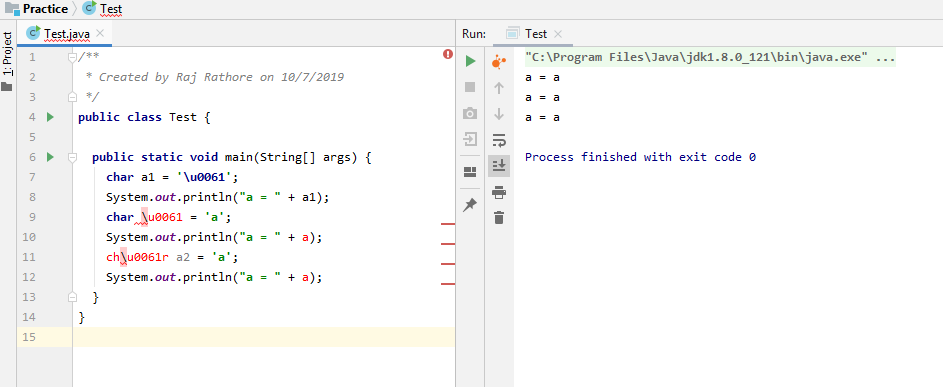The compiler can recognise Unicode escapes and translate them to UTF-16. ch\u0061r will become char which is a valid primitive type. It makes option D correct.
A compiler for the Java programming language ("Java compiler") first recognizes Unicode escapes in its input, translating the ASCII characters \u followed by four hexadecimal digits to the UTF-16 code unit (§3.1) for the indicated hexadecimal value, and passing all other characters unchanged.
\u0061 will be translated to a which is a valid Java letter that can be used to form an identifier. It makes option C correct.
An identifier is an unlimited-length sequence of Java letters and Java digits, the first of which must be a Java letter.
Identifier:
IdentifierChars but not a Keyword or BooleanLiteral or NullLiteral
IdentifierChars:
JavaLetter {JavaLetterOrDigit}
JavaLetter:
any Unicode character that is a "Java letter"
JavaLetterOrDigit:
any Unicode character that is a "Java letter-or-digit"
A "Java letter" is a character for which the method Character.isJavaIdentifierStart(int) returns true.
A "Java letter-or-digit" is a character for which the method Character.isJavaIdentifierPart(int) returns true.
The "Java letters" include uppercase and lowercase ASCII Latin letters A-Z (\u0041-\u005a), and a-z (\u0061-\u007a), and, for historical reasons, the ASCII dollar sign ($, or \u0024) and underscore (_, or \u005f). The dollar sign should be used only in mechanically generated source code or, rarely, to access pre-existing names on legacy systems. The underscore may be used in identifiers formed of two or more characters, but it cannot be used as a one-character identifier due to being a keyword.


\u0061to the charactera, that makes (c) valid. Since it is allowed and possible as a variable name, it is also allowed and possible in a type name, soch\u0061ris justchar, which makes (d) valid as well. – Rocketeerjavaccompiler... maybe some settings or so, but no idea WHICH IDE your are using. – Malek